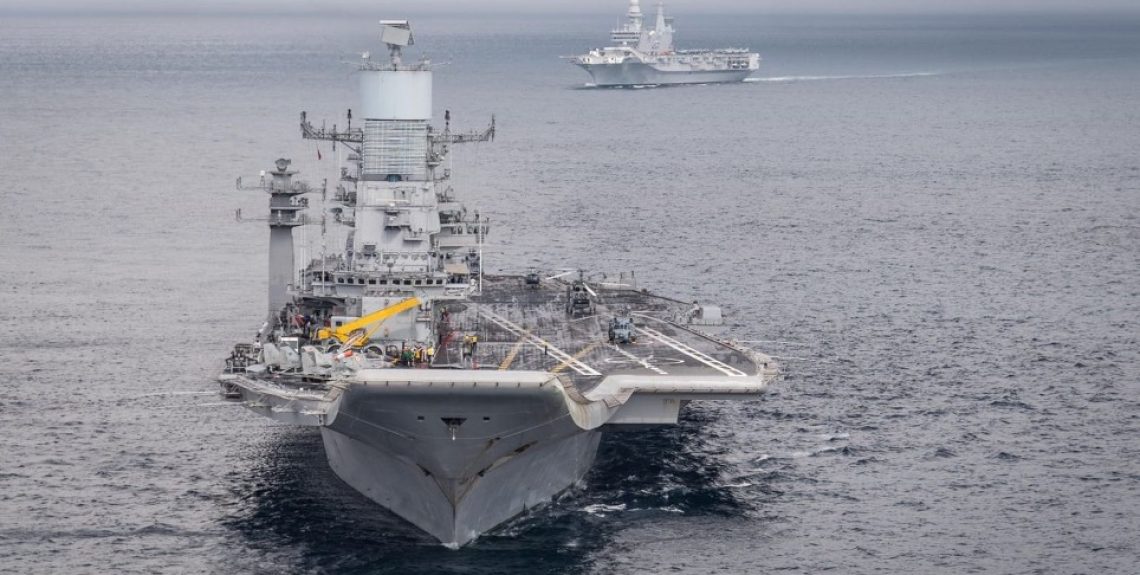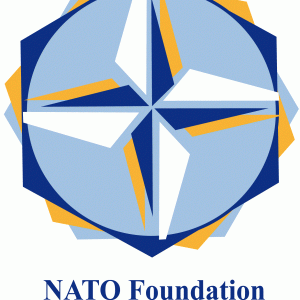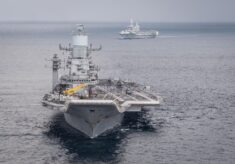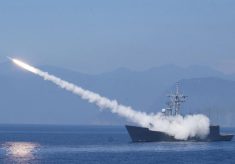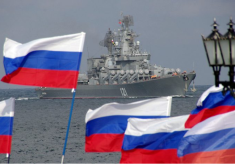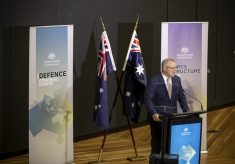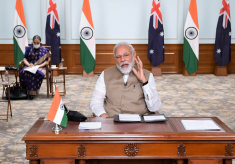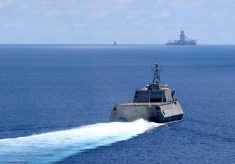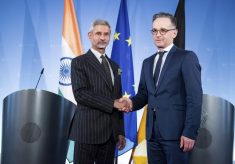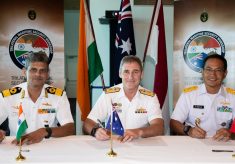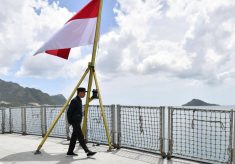The historic maiden drills between the Italian Navy, led by the flagship carrier Cavour, and the Indian Navy (1-6th of October) carrier group, mark a significant deepening partnership between Rome and New Delhi. These manoeuvres, ahead of the strategic Malabar 2024 quadrinational exercise, showcased their increasing cooperation in maritime security, putting finally to rest the “Italian marines” incident (2012). Both nations face piracy threats in the Indo-Mediterranean, and these exercises demonstrate a shared commitment to protecting key sea lanes.
Piracy, especially around the Gulf of Aden, remains a critical concern. The Commander in Chief of the Italian Fleet, Adm. Aurelio De Carolis noted that redirecting maritime traffic around the Cape of Good Hope, due to the Houthi-controlled destabilisation of the Suez-Bab El Mandeb geoeconomic corridor, has heightened risks and economic costs. Indeed, Italo-Indian cooperation is a strategic response to safeguarding trade routes between the Mediterranean and the Indian Ocean, reinforcing regional stability.
Beyond these exercises, Italy is working to strengthen its presence in the Indo-Mediterranean by leveraging India as a critical partner. Italy’s involvement in EUNavFor operations “Atalanta” and “Aspides” and in the Combined Task Force 153, aligns with India’s regional leadership in initiatives like the Indian Ocean Naval Symposium (IONS) and the Indo-Pacific Oceans Initiative (IPOI). Together, these efforts emphasise their shared interest in promoting maritime security in an increasingly volatile region.
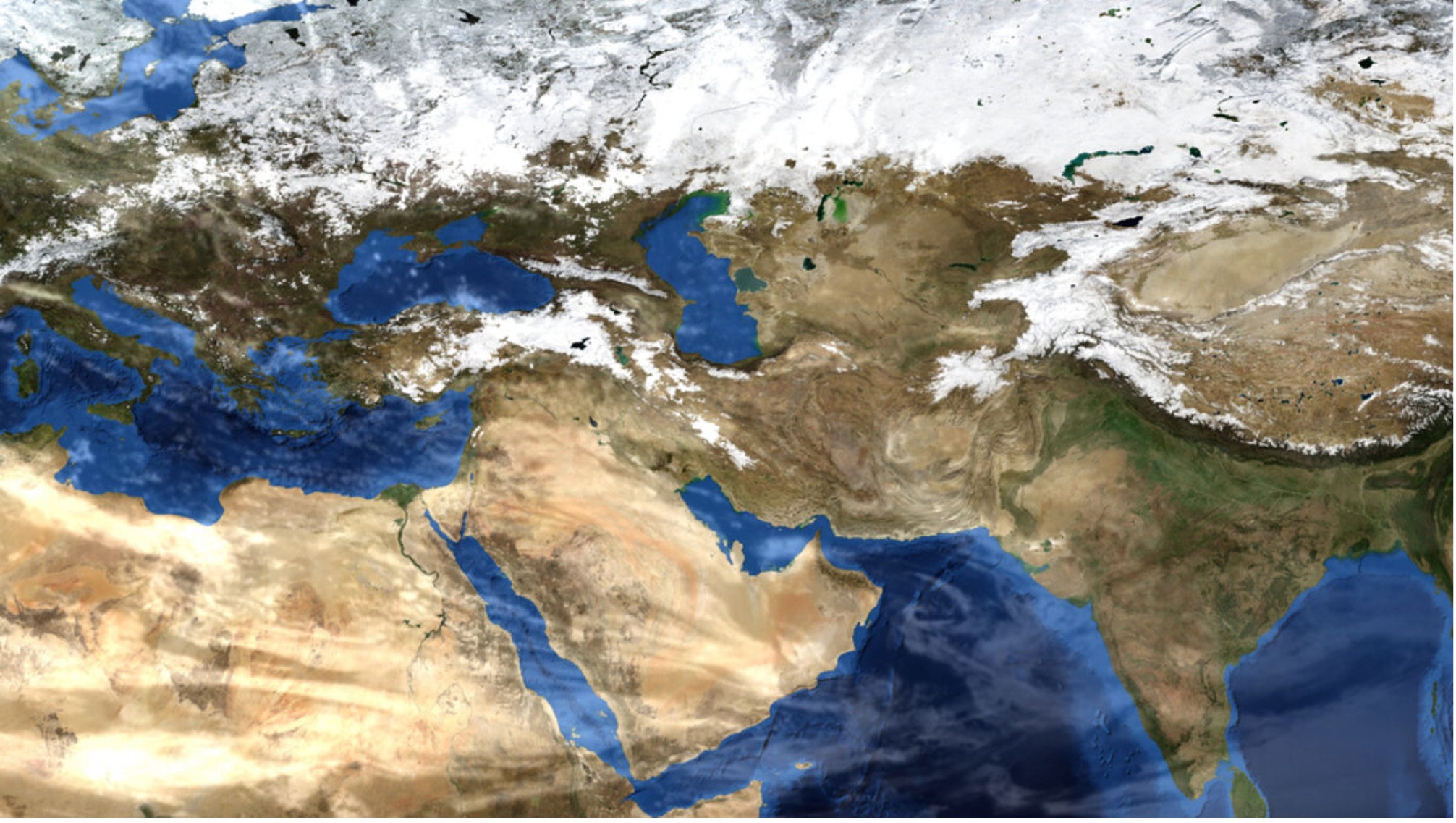
While India has historically maintained a non-alignment policy, recent developments, such as the Tarang Shakti 2024 (Wave of Energy) air exercises with France or the continuation of annual “Yudh Abhyas” exercises since 2004 (“Training for War”, 9-22nd of September) with the USA, may witness a cautious willingness to engage with NATO members on specific security issues. The growing rapprochement could foster more significant operational synergies in maritime security, where both parties share substantial interests.
Evidently, there are India’s longstanding defence ties with Russia, because New Delhi remains committed to strategic autonomy, balancing its relationships with multiple powers, also in order to counterbalance China’s expansion of maritime operations in the Indian and Pacific Oceans. It is evident that NATO needs to recover its 360° approach, not only towards the Southern Region, but also regarding the Indo-Pacific Region, if it wants to bridge effectively the Indo-Pacific continuum.
Indeed, the fact that India keeps its Russian relationship should not be a major obstacle, since it is the same situation of Serbia, that is NATO partner in the Partnership for Peace. It will require time, engagement, resources and common work, but it will be impossible managing the Indo-Pacific without India, who considers this ocean its own preserve.
Italy’s role as a NATO member and an increasingly closer partner of India may facilitate, with the support of all allies, an increased human interoperability between political, diplomatic and military personnel, that in turn may reverberate on practical and operational effects.


